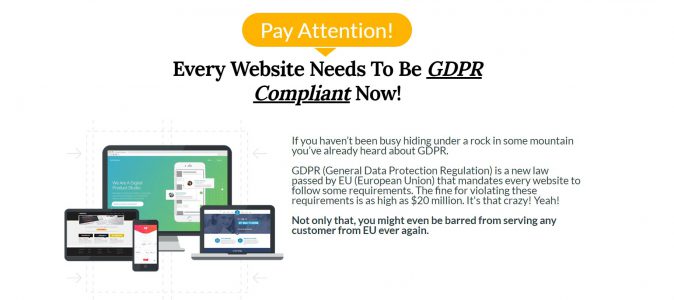As A Business – What Is Your Target Market?
As simple as it sounds, what is your target market or the audience that your business is geared towards? A lot of businesses start off without a sense of direction and only with an intention to be profitable. However, the profitability they seek needs to hone in on their target market.
In this contributed article, the whole idea of knowing what is your target market is discussed and the defined to help you regain your footing in the needs of your business.
Just How Well Do You Know Your Target Market?
There are some jobs for which you need a sledgehammer and others for which you need a scalpel. There are times when you need force, power and devastating efficacy. And there are some, where you need precision, detail and a concentrated application of force.
In the early days of marketing, all we had was sledgehammers. Brands would pay big bucks for advertising across multiple platforms; they’d plaster themselves on the sides of buses, on billboards, on radio and TV and later, when the digital age arrived, on online popups and ads.
There’s certainly an argument for sledgehammers. They can help to create brand ubiquity and if your product appeals to virtually everyone, transcending barriers of age, gender, occupation, culture, or income bracket it can be a very powerful tool.
Most brands, however, have learned to survive in an unforgiving and extremely competitive environment by knowing their niche. Before they even began training, they conducted significant market research in ascertaining the right target market for their products and services and started marketing directly to them.
When Scalpels Become Sledgehammers
One of the wonderful things about the digital age is that it offers us a huge range of scalpels. If we keep a close eye on our data and know our metrics, we are able to deliver targeted content, campaigns and offers designed to grow our reach within a carefully selected target market.
Broadly speaking, the better you know your target market, the better you are able to appeal to their sensibilities and the higher your conversion rates will be.
But the lot of an entrepreneur is not an idle one. Many hard-working CEOs simply don’t have the time to analyze the intricate data that can help them glean a better understanding of the personas, profile, and needs of their target markets.
If they lose touch with this data they can adopt a ‘spray and pray’ approach to their marketing and before they know it, they’re using a sledgehammer to do a scalpel’s job. Remember, everyone is not a target market.
A social media agency can be invaluable to you in gaining a greater insight into your target audience and what their online behavior is telling you about your business and the changes that you need to make to better appeal to them.
But even if you do choose to consult an agency, it behooves you to learn more about your target market and how your business may be helping or failing them. Here we’ll look at some ways in which you can better understand your target market.
Go Back To Basics, Start With Your Products
Look at any big brand and you’ll see a successful example of a business that has developed a product or service that was in the right place for the right people at the right time. Some of them may even surprise you.
Coca-Cola, for example, was originally intended as a patent medicine created by a pharmacist in Atlanta. It was sold in pharmacies in its early years for just 5 cents a glass. When you first started your business, you likely started out with a single product or a modest range of products designed to fulfill a particular need.
What is that need? As you have added more products and/or services to your inventory, have you lost touch with that need? Have your aims become too diffuse? Expansion and diversification are wonderful things but they should not come at the expense of your original USP.
Go right back to your original mission statement. How well does your current inventor of products hold up against it? Look at what’s selling and what isn’t.
It’s very tempting to develop a product that we ourselves have fallen in love with that simply doesn’t resonate with our target market no matter how fervently we try to promote it.
Even the biggest brands have products in their back catalogs that simply didn’t work from Crystal Pepsi to Google Glasses. Listen to what your audience wants instead of telling them what they want.
Who Are Your Customers, And Are They The Same As When You First Started?

Inevitably, every business experiences turnover within their consumer base. Indeed, one of the finest lines most businesses walk is that of reaching new customers while retaining their existing customer base. Only by retaining customers can you hope to create an army of loyal brand advocates who will do a lot of the heavy lifting for your brand across social media platforms.
Getting to know your target market is a broad and multifaceted discipline, but it’s one that can help to ensure that you’re still fulfilling the promise of your brand to the kind of consumers that you want to target.
If you want to seriously get to know what is your target market, Google Analytics is an extremely comprehensive tool which can help you to ascertain in which groups your products and services are gaining the most traction. If you want to go low tech, however, simply take a scroll through your social media feeds.
Take a look at who’s sharing your content, responding to your posts and dropping your likes. Are they within the parameters of your target market? Do the same names keep popping up again and again? This can be a sure sign of brand loyalty.
If, however, you want to expand your reach organically, take a page from the Uber playbook. What made the taxi giant gain viral traction in an already busy market?
One could argue that the way its app incentivized its users to share it among their friends, families, and colleagues was integral to the brand’s success.
And Finally… Know Your Competitors
The same people you want to target are also in your competitors’ crosshairs and there’s no shame at peeking across the lot to see what your competitors are doing to engage your target market. Moreover, you should look at how their market share stacks up against yours.
How much are they being talked about on social media platforms compared to you? How much more competitive are their prices? How much value do you offer for money compared to them? Are there any niches which your competitors are consistently missing?
These could offer you some real opportunities to clean up! Yes, it is a great thing when you know what is your target market and how to capitalize on the knowledge!
Images courtesy of Pixabay and BlueDiamond Gallery.

How would you like to unleash your creativity by creating a post like this one?
It really is very easy as long as you have the right tools. Creating your own blog gives you the opportunity to reach people with similar interests and communicate in a language that they understand.
You can even use your blog to make extra income.
Here is where I learned how to create my own blog and connect with people who helped me along the way.
Click Here and see what it is all about!









 Hello there, I am
Hello there, I am 


2 thoughts to “As A Business – What Is Your Target Market?”
Totally agree with you that businesses must know their target market. And yes, Google Analytics is one of the useful online tools to help businesses to do that better. It is also useful to understand the target market. For example, in Southeast Asia, Uber lost the battle to Grab (their competitor here) because they did not understand their target market as well as their drivers. Today, Uber has left this region, admitting defeat, and sold their business to Grab. Thanks for a very helpful business article, Michelle.
Hello Timotheus,
Thanks for your visit. Thanks also for that ‘real-life’ Uber story – surely a prime example of not knowing your target market. This is so very ‘key’ for your business. It will determine the life or death – of your business. Much success to you.
Michelle